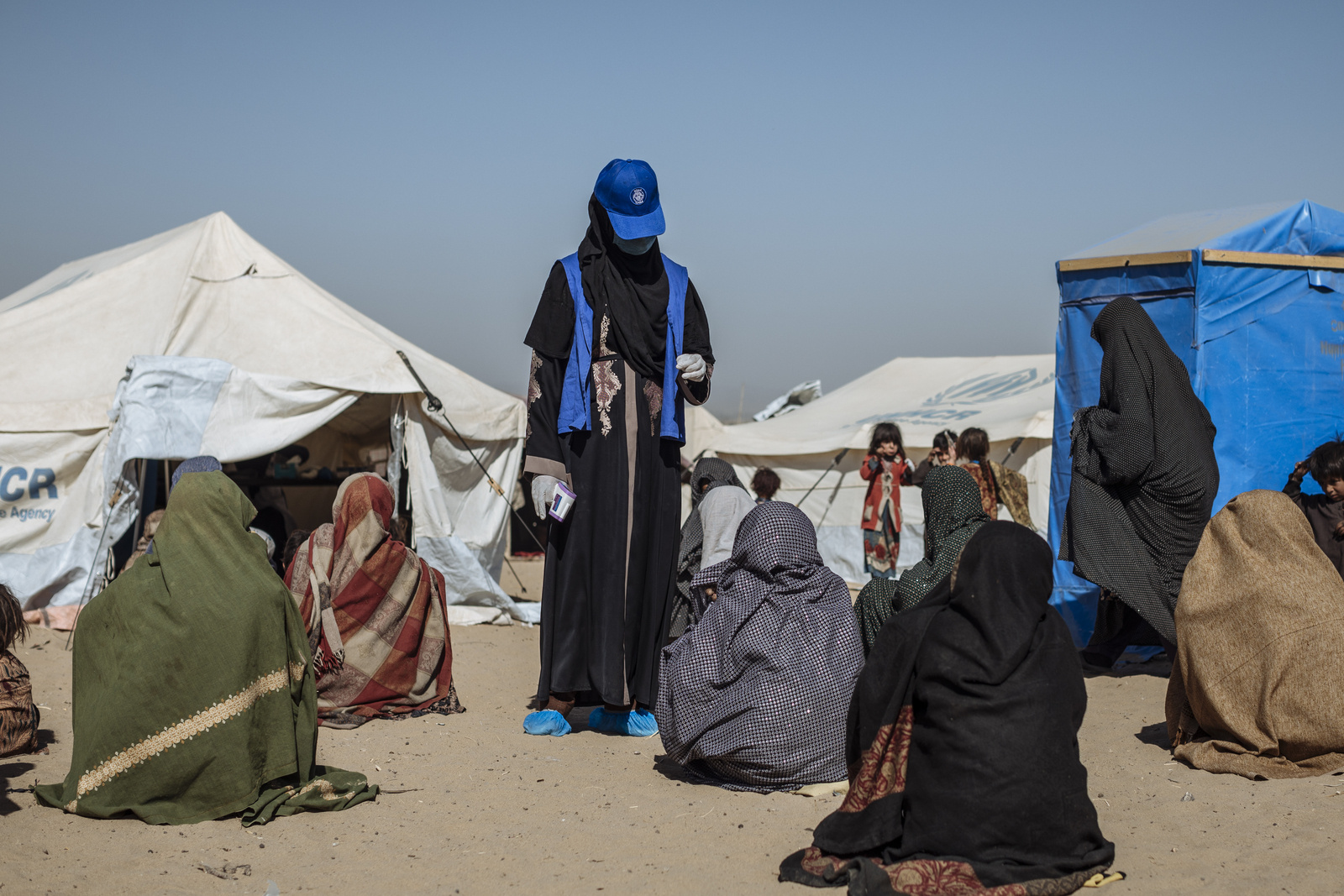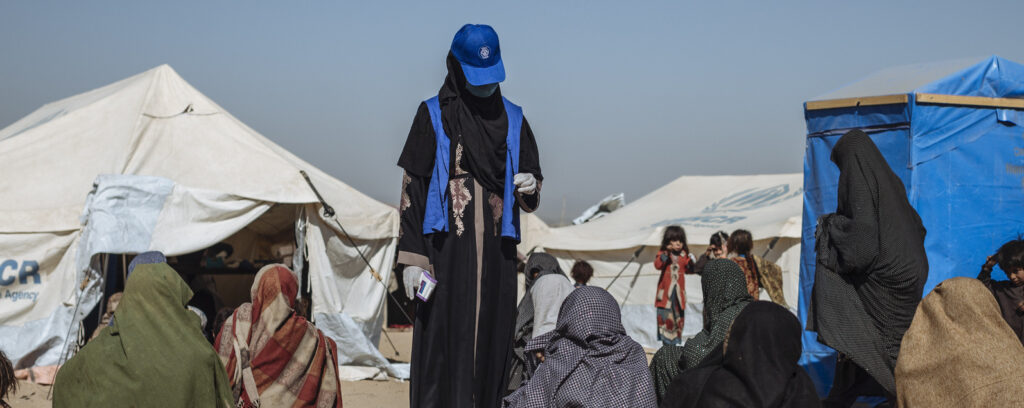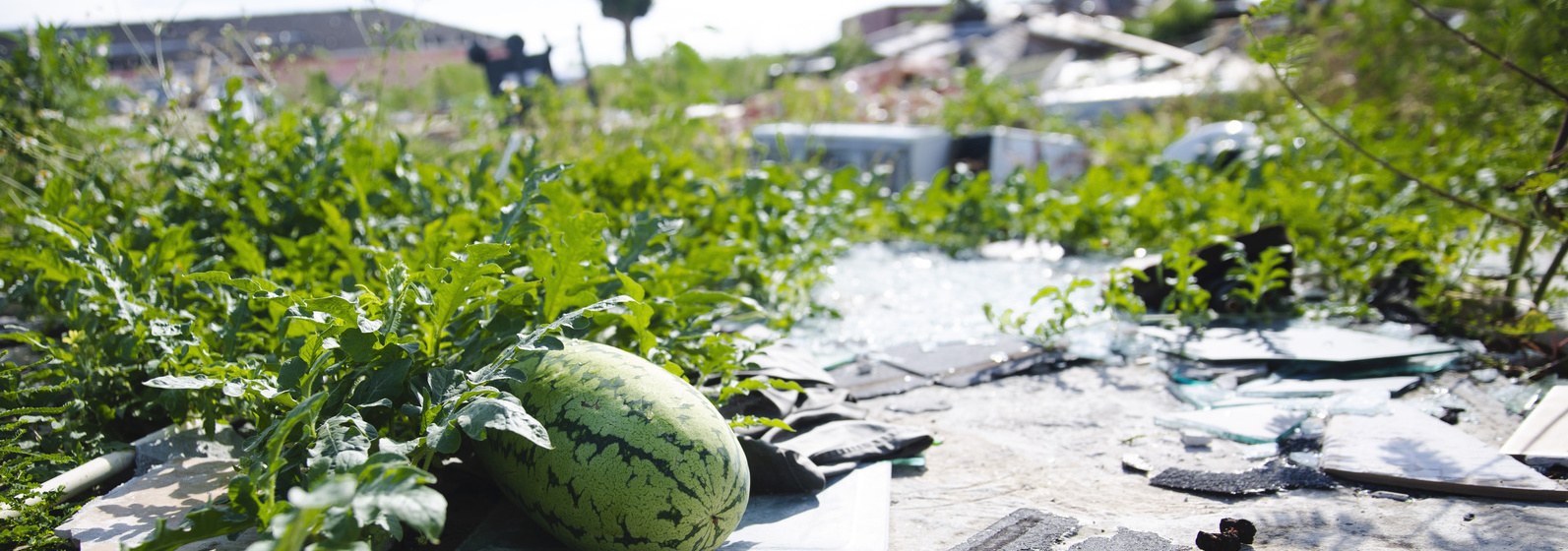

Miriam is one of the over 5.5 million internally displaced in Afghanistan; she lost three sons in the recent conflict and has not heard from her remaining living son since he left home to seek a job abroad two months ago. “Being so uncertain about his fate and whereabouts is painful,” Miriam told an IOM worker with tears streaming down her face. Miriam, and many others like her, are dependent on IOM’s Humanitarian Assistance Programme.
IOM’s operations in Afghanistan continue across multiple provinces since the heart-wrenching events of August witnessed worldwide in the news and on social media. More than 630,000 individuals have been newly displaced by conflict this year; almost half of whom left their homes since July and an additional 28,000 have been displaced by disasters.
IOM has maintained a consistent presence in Afghanistan since 1992 through conflict, humanitarian crises, and natural disaster, and we remain committed to supporting the Afghan people, men, women, and children alike, with their immediate humanitarian needs as the first concern. IOM has launched an urgent appeal for USD 24 million to scale up its response to the most pressing, life-saving needs. At this stage, IOM is providing emergency shelter and core relief items to Afghans who have been displaced from their home jointly with the World Food Programme allowing families to receive essential food and non-food items together.
IOM also delivers development and community stabilization programming to support people on the move across Afghanistan. This includes health services, including primary healthcare, reproductive healthcare, COVID-19 response, and mental health support; protection case management and monitoring; support to small businesses; disaster risk reduction; and holistic community development interventions supporting stabilized communities and bolstered resilience.
IOM refuses to abandon the people of Afghanistan, and we are thankful we are not alone in our commitment. As the events in August unfold with scenes of despair and desperation, the US public showed concern, care, and support.
Last year, 2020, marked a record high for US private sector and philanthropic individuals’ charitable contributions. The resilience and responsiveness of the American people to increased and widespread needs throughout the ongoing COVID-19 pandemic is encouraging and inspiring. As the need persists, we are confident the response of the US public will as well.
If you are interested in supporting the meaningful, crucial work of IOM in Afghanistan, please contribute HERE.


Last week, Maria Moreno, Head of USA for IOM Operations, met virtually with IOM’s Chief of Mission in Haiti, Giuseppe Loprete, to discuss IOM’s ongoing emergency response for survivors displaced by the earthquake in Haiti.
Their conversation marks 1-month since a 7.2 magnitude earthquake hit the southern region of the country. Haiti is one of the countries most prone to natural disasters in the world. As Chief of Mission, Loprete has worked to ensure that IOM, and our partners, are prepared to respond when disaster strikes and provide long-term recovery support for affected communities.
Hurricane season in the Caribbean lasts from June to November, and IOM, along with its government and civil society partners, has developed extensive emergency response protocols for when disaster strikes.
This preparation allowed IOM to mobilize quickly. Within 24 hours, IOM had deployed its team to distribute shelter and hygiene kits, including tarps, blankets, and personal sanitation materials, to those displaced from their homes.
After the devasting 2010 earthquake, IOM and its implementing partners dedicated themselves to preparing for the next disaster.
Haiti developed a national Civil Protection Agency with an extensive network of field officers. This infrastructure allows Haiti to quickly coordinate with state and local bodies when an emergency occurs and has made the country a regional expert in disaster response.
Meanwhile, IOM has developed mechanisms to act as a first responder to potential displacement events. In Haiti, this includes regularly running emergency operation simulations and mapping shelters and other life-saving resources.
Another lesson learned from the 2010 earthquake was the importance of building and maintaining trust to humanitarian operations. For IOM, this begins with respecting local knowledge and systems already in place by the government, local associations, NGOs, and community leaders.
Without these partnerships, IOM would be unable to help those most vulnerable. Loprete explains the reach of IOM, saying, “we cannot stop where the paved road stops. We have to go beyond that. Once we reach those that we think are the most vulnerable, we usually get there and they say to us, ‘no, you have to go further, there are people over there who are worse off.”
Providing shelter is currently IOM’s top priority. Many still do not have a roof over their heads as their homes are being assessed for structural integrity.
IOM is working to avoid the prolonged displacement experienced in the wake of past disasters and is dedicated to supporting survivors throughout recovery efforts in the coming months and even years.
“Haiti is facing multiple crises,” reports Loprete, including a global pandemic, seasonal hurricanes, and institutional and political crises. He emphasized that this is a moment when we need everyone to come together to do more than recover but to build resilience to face the next crisis.
IOM has already distributed 150,000 relief items to 61,000 families in Haiti. Currently, IOM is working to bring these materials the ‘last mile’ to those in the most remote regions who need them most. You can help by donating to organizations that are working with local partners to lead a sustainable recovery.
If you would like to support the work UN Migration, please donate here: https://usaforiom.org/fundraising-haiti/.
_____________________
For more live updates on IOM’s work responding to global crises, tune in next month for more from USA for IOM’s new series, From the Field.

USA for IOM is the International Organization for Migration (IOM)’s nonprofit partner in the United States. | EIN 52-1525929
1752 N St NW Suite #600
Washington, D.C. 20036
For any inquiries please email us at info@usaforiom.org
© 2025 USAforIOM